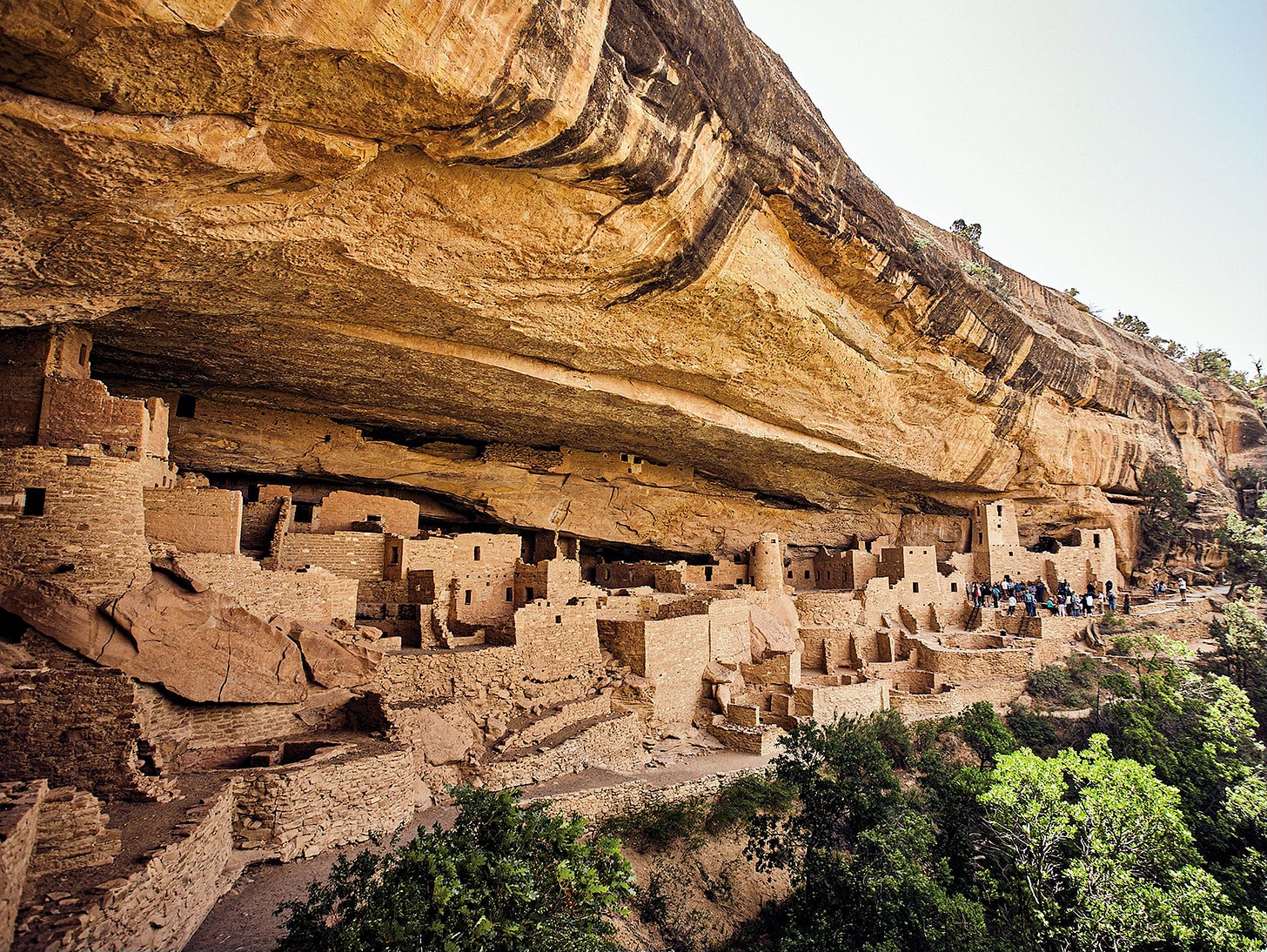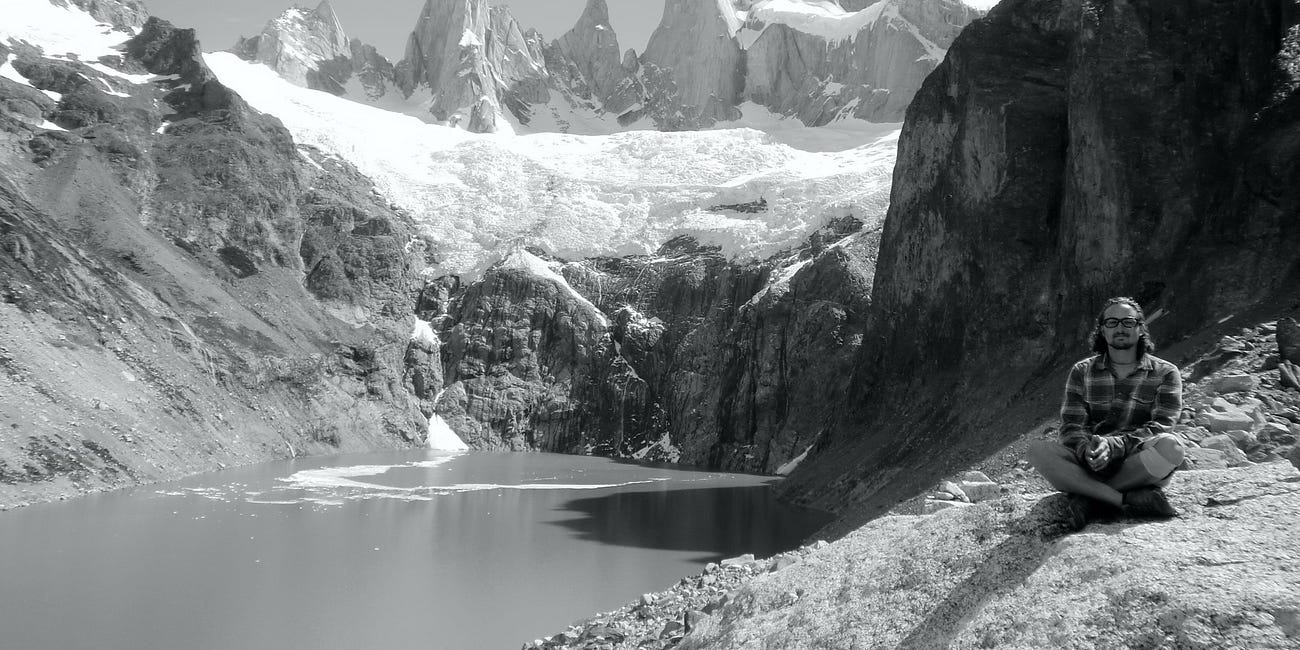Here’s a question: look out your window and what’s the biggest thing you see?
For most of us, that’s a building, or many buildings, maybe even a row of skyscrapers along the horizon line. Such a view might lead one to believe humans are pretty special—and when the biggest thing in sight is manmade, that’s a reasonable take. Which leads to another question: what does this do to our collective ego?
A decade ago I lived in Denver, sixteenth-floor apartment facing west, with a glorious view of downtown and the Rocky Mountains beyond. Every day I pushed that button in the elevator with a puffed up chest thinking I was pretty cool rising up to the top floor. In the end, I lasted one year.
The thing that ultimately drove me out wasn’t the noise or crowds or anonymity, but the utter lack of anything wild—every park and waterway had long been reconceived from its natural state, razed and reconstructed by the hands of man. And then there was the realization that no matter how tall that gold dome of the capitol, it had nothing on the mountains towering over the city, twenty miles away.
When the biggest thing in sight isn’t a building but a mountain, it changes your perspective. Both in scale and in time. The mountains couldn’t care less what we do as people. The youngest mountain was here long before us; and the oldest now will remain long after we’re gone.

Something like a mountain keeps us humble, keeps us small in the best kind of way. The same goes for oceans. (And though I want to say the same for forests and rivers, the clearing and damming of these wild spaces gives the false sense of human superiority.) Nevertheless, we can always use a reminder.
It’s no wonder thousands of writers have referenced these grandest of natural places. Take John Muir:
Climb the mountains and get their good tidings. Nature's peace will flow into you as sunshine flows into trees. The winds will blow their own freshness into you, and the storms their energy, while cares will drop away from you like the leaves of Autumn.
Yes! And yet there’s a fundamental problem with ideas like this. They place nature as the other, the something else, the place we don’t live here but which exists elsewhere. This perspective is flawed because instead of seeing ourselves as part of nature at all times, it makes us exceptional.
But humans are not the exception to the rule of nature. For the past 12,000 years we have indeed been bending the environment to our will, when we started farming and domesticating livestock, as opposed to hunting and gathering. Otherwise known as the neolithic revolution. Of course, civilization as we know it would not be possible without this development, but it’s worth noting that hunter-gatherers had more leisure time than we do now.
As Charles Eisenstein says in Sacred Economics: “Even a billion-dollar landholding is smaller than the domain of the hunter-gatherer. Any squirrel is freer than I am, any deer.”
Kind of puts a damper on hustle culture. Even with all our time-saving conveniences—household appliances, automobiles, the internet—we’ve built a society hellbent on working us into the ground. And for what? Lawrence Gonzales provides a brutal assessment in his book Deep Survival: “We are the domestic pets of a human zoo we call civilization.”
Before getting into what might be done about it, I think it’s worth outlining the bigger picture of the planet’s history for some perspective. Humans have been around for 300,000 years. And in the last 500 million years, Earth has seen five mass extinctions. Through each extinction event, life has carried on. When some species died out, others flourished. The asteroid that killed the dinosaurs, after all, made room for us.
Yet this feels abstract. It’s too big to comprehend. But like a fractal that repeats into an infinitesimally small scale, the same forces that led to these events are at play today.
We tend to overcomplicate things when it comes to our species’ past, convincing ourselves that what happened to humans a hundred, a thousand, even ten-thousand years ago is not happening anymore, but you barely need to crack the history books to see the correlation between humans and the environment.
For instance, the latest theory of why people abandoned the great cliff dwellings of Mesa Verde in Southwest Colorado was that they simply ran out of firewood. And there are thousands of examples like this, most with people whom we assume were “in tune” with the environment simply because they were of an earlier time. With our modern separation from the natural world, and our blustery attitude toward dominance, the ignorance is only exacerbated.
The point is our actions have consequences. This is not news, of course. The message is subtle, however, and if there’s one thing egos can’t parse out it’s subtlety.
To put it more on the nose, in my favorite book of all-time, Ishmael, Daniel Quinn writes:
There’s nothing fundamentally wrong with people. Given a story to enact that puts them in accord with the world, they will live in accord with the world. But given a story to enact that puts them at odds with the world, as yours does, they will live at odds with the world. Given a story in which they are the lords of the world, they will act like lords of the world. And, given a story to enact in which the world is a foe to be conquered, they will conquer it like a foe, and one day, inevitably, their foe will lie bleeding to death at their feet, as the world is now.
So, taken as truth . . . what do we do?
A good friend of mine put a sticker on his snowboard: STARVE THE EGO, FEED THE SOUL.
Considering the terrain required to use it, that board is a perfect place for such a statement. As we said, the mountains keep us humble, and sliding down them is merely a form of marginally controlled chaos—which is about as good as it gets living on this planet, not only for fun but in our day-to-day life just as well. Because control is an illusion.
If we accept this, then perhaps our perspective can change. The wonders of nature are unfathomable; trying to control any of them is like trying to slay the hydra, whereby as soon as we meddle with one feature, two more appear that we must be dealt with. So maybe we ought to lay off a bit, give nature a chance to do what she does best: support life.
I take solace knowing that so long as the sun shines life will go on. The question is: will humans be a part of it?
This isn’t really about the environment at all. It’s about us. Take this oddly-appropriate example—I once saw a sign above a water-free urinal which read (and I’ll paraphrase here): by using this urinal you are helping the environment to conserve 100,000 gallons of water every year. But we’re not helping the environment, we’re helping ourselves; we confuse conservation with an act of charity toward the planet, when it’s actually an act of charity toward us.
But if we kill the ego, we kill the selfishness that’s gotten us here. The Stoic philosopher Epictetus once said: Wealth consists not in having great possessions, but in having few wants. Perhaps that is the mantra we ought to adopt. Not seeking endless growth (looking at you GDP), but finding contentment in the beauty we already have here on Earth, living in accord with it, and finding humility in doing so.
And, lastly, a few practical notes: take more nature walks, read people like
, know your farmer, and whatever you do, remember no matter how big we think we are, there’s always a mountain out there bigger.-Martin
If you liked this one, here’s another . . .
Meditating with Grapefruits
I like the idea of meditating but have no fucking idea what I’m doing when I try, so mostly, I don’t. But I think I’ve figured out something approximate with grapefruits. Allow me to explain.










That’s a little something Ed Abbey would have enjoyed reading. I loved it, too. Thanks for the gentle reminders of what’s important.
I wake up, open the blinds and see our horses
Makes me smile every morning